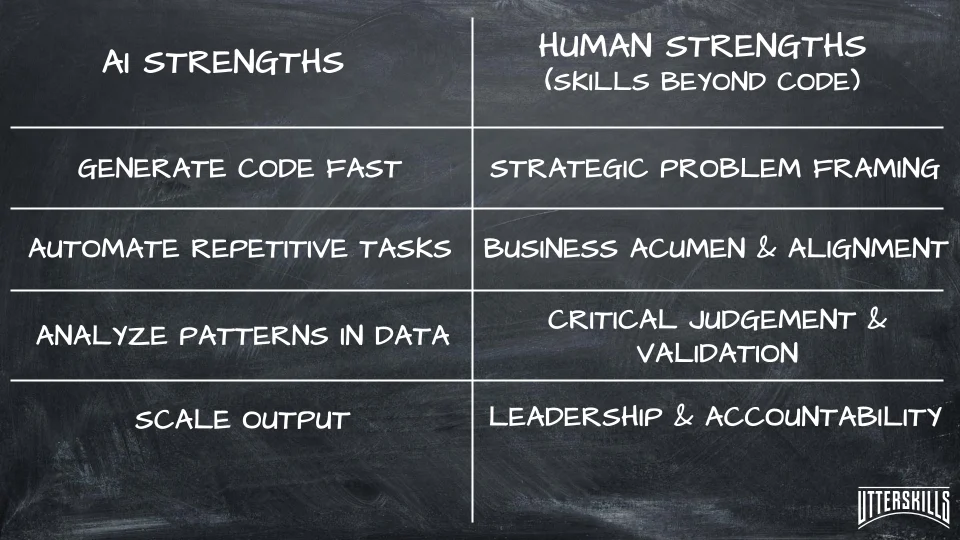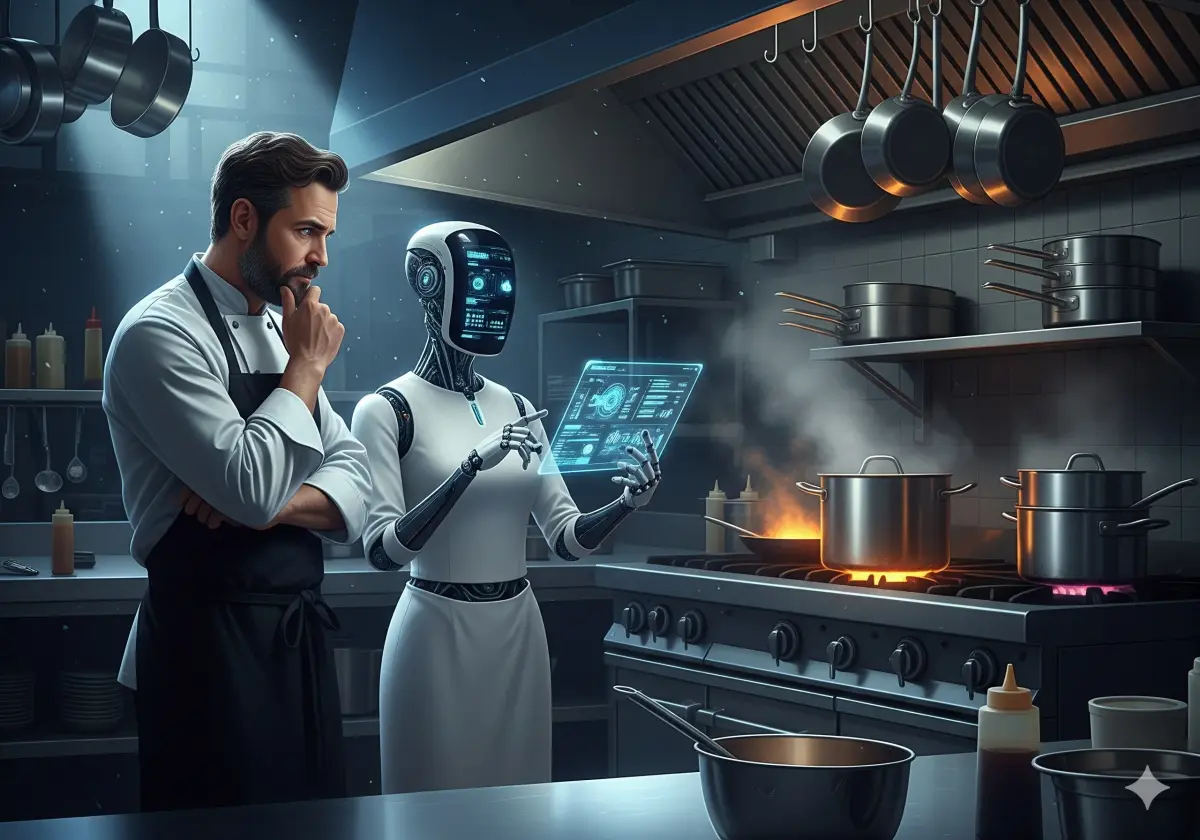Tools like ChatGPT and GitHub Copilot can write code in seconds, but speed alone doesn’t create strategy, protect culture, or build resilience. As a business owner, your real advantage won’t come from the technology - it will come from your people.
This is the first article in a three-part series on the future of engineering in the AI era. Here, we’ll explore why AI cannot replace human judgment, and why your staff must learn skills beyond code to turn AI into an advantage rather than a liability.
AI won’t build your business
A federal judge sanctioned lawyers representing MyPillow CEO Mike Lindell after they filed a court brief filled with hallucinated citations from GPT. The AI didn’t malfunction - it generated text exactly as designed. The failure was human. No one on the team applied the judgment or verification needed to stop the errors before they reached the court. (Colorado Sun, JD Supra)
This is the risk every business faces. AI can move fast, but without human oversight, it can move you straight into trouble. And for owners, the message is clear: AI will not build your business. Only people - equipped with skills beyond code - can do that.

AI accelerates execution, but humans provide direction. Here's the difference at a glance.
Code is commoditized - strategy isn’t
Generative AI has changed the economics of engineering. Tools like GitHub Copilot and ChatGPT can generate boilerplate code, draft documentation, and even propose bug fixes in seconds. That’s the upside. The downside? Code is becoming commoditized. If everyone has access to AI that can write decent code, then code alone stops being your differentiator.
What separates thriving AI-powered businesses from failing ones isn’t who has the fastest tools - it’s who has the people capable of asking the right questions, applying sound judgment, and aligning AI’s output with strategy.
AI’s blind spots = your staff’s training agenda
1. Business misalignment
AI generates outputs, but it doesn’t know why. A GPT chatbot can draft legal arguments, but it cannot decide which ones align with your market position or business strategy.
Skill beyond code required: Business acumen - connecting technical output to organizational goals.
2. Ethical blind spots
Large language models “hallucinate” false but convincing content. Stanford researchers found legal LLMs fabricated citations in up to 1 in 6 queries. Left unchecked, these errors can escalate into reputational or legal disasters. (Legal Dive)
Skill beyond code required: Critical thinking and ethical reasoning - people who validate, question, and hold AI accountable.
3. The leadership gap
In 2024, the UK’s official Gov.UK chatbot gave wrong business guidance, embarrassing the government and undermining public trust. The issue wasn’t the model - it was the lack of human oversight and editorial leadership. (The Guardian)
Skill beyond code required: Leadership and accountability - creating processes where humans remain “in the loop.”
Why your people are still the head chefs
Think of AI as a sous chef: fast, precise, tireless. But no restaurant wins a Michelin star because the sous chef followed recipes well. It wins because the head chef designed the menu, balanced the flavors, and created an experience customers value.

AI tools are like sous chefs: fast and precise, but it's the human 'head chef' who creates the strategy and vision that wins customers
Your engineers are the head chefs. To lead in an AI-driven market, they must move beyond execution into judgment, vision, and leadership. That means learning to:
- Frame ambiguous problems.
- Communicate across technical and business domains.
- Exercise ethical oversight.
- Align AI’s output with strategic goals.
Owners: the next move is yours
If you want AI to accelerate your business, you must invest in your people. Not just in technical training, but in skills beyond code - judgment, business acumen, communication, and leadership. Otherwise, AI won’t be your competitive advantage. It will be your liability.
AI can power your processes. But only your people can build a business that lasts. For a practical framework of the human skills that matter most, see the 7 essential skills beyond code for software engineers.
Next in the series
In the next article - From Code to Culture: The ROI of Human-Centered Engineering - we’ll show how these human skills directly translate into measurable business returns: fewer costly delays, faster time-to-market, lower turnover, and stronger profitability.